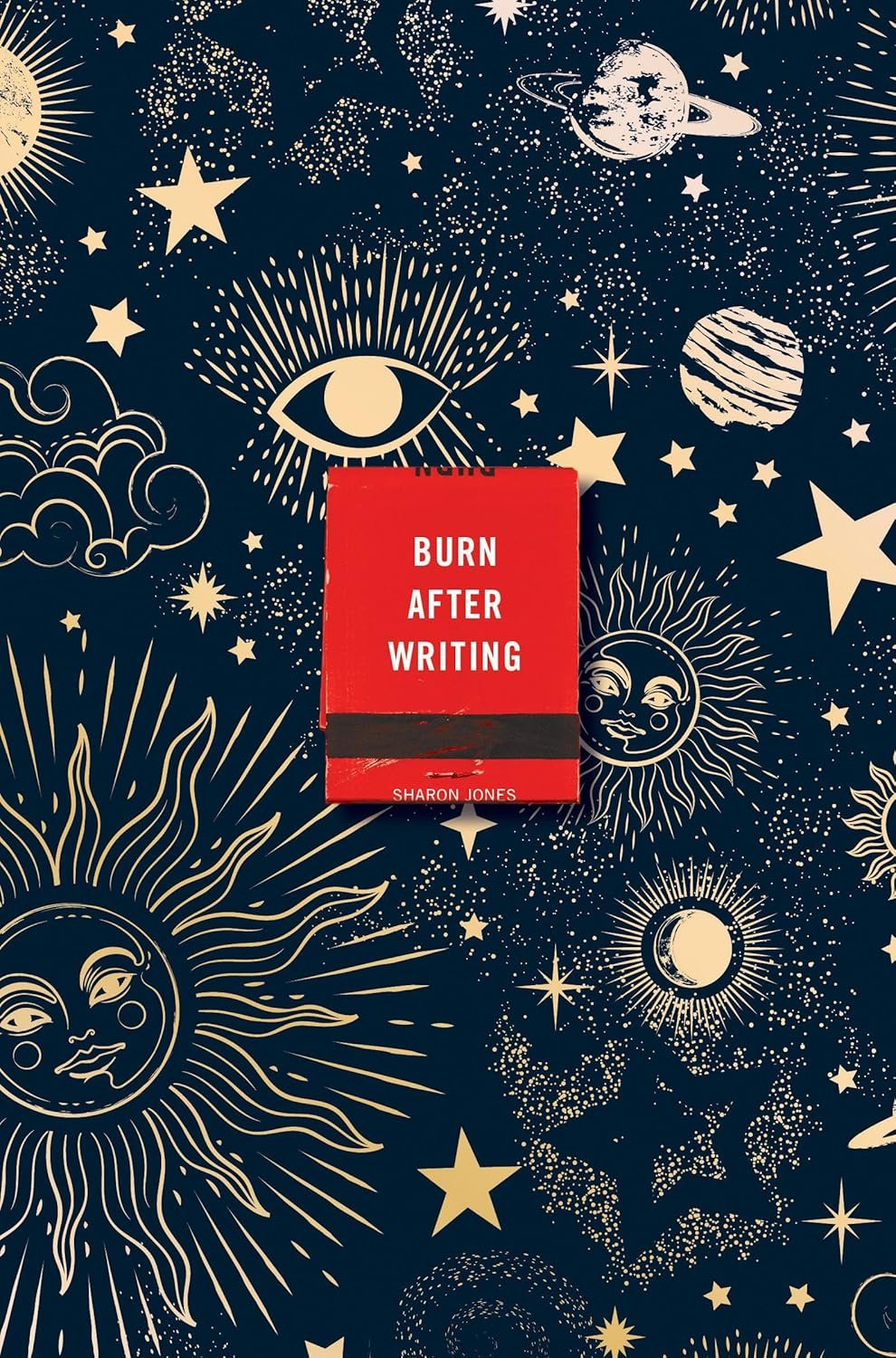
10 Jul Unraveling Secrets: A Dive into the Pages of Burn After Writing
Unpacking the Heart: A Review of Burn After Writing (Celestial)
When I stumbled upon Burn After Writing by Sharon Jones, it felt like an invitation to explore the often uncharted territories of my own thoughts. In a world cluttered with social media highlights and superficial interactions, the idea of a private space for unfiltered self-reflection resonated deeply. This journal isn’t just about recording musings; it’s about unraveling the complexities of our inner selves. Who doesn’t crave that kind of introspection in today’s fast-paced environment?
From the first page, Burn After Writing captivated me not just with its title but with its purpose. The book offers a series of intriguing questions and thought experiments that urge us to dig deep into our pasts, confront our present emotions, and contemplate our futures. It’s a contemporary confessional of sorts—a sanctuary where I could express feelings and thoughts that I might normally lock away, fearing judgment or misunderstanding.
One of the key themes that emerged during my journey through this journal is the importance of honesty, particularly the honesty we owe ourselves. As one reviewer poignantly stated, this book encourages a level of introspection that can be difficult, especially if you’ve spent a lifetime wearing masks. I found myself inspired by their words, understanding that the pages of this journal could become a treasure trove of self-discovery, rich with truths I had previously ignored.
Jones’s writing style is accessible and invigorating, causing the pacing to almost feel conversational. As I flipped through the pages, I was greeted with thoughtful prompts that felt like gentle nudges rather than forced questions. Each prompt encouraged me to peel back the layers of my own experiences, like unwrapping a gift I hadn’t realized I needed. I was particularly moved by the reflective exercises that asked me to consider my childhood joys and to disentangle them from the expectations of others—something many of us grapple with.
The supportive testimonials sprinkled throughout the book bring to life its transformative nature. One user mentioned how writing nightly has catalyzed a profound understanding of their identity. I couldn’t help but feel a surge of empathy and excitement for them; it’s a powerful reminder that many are on similar journeys, seeking to discover who they truly are.
If you’ve ever felt overwhelmed by forms of self-expression that demand public scrutiny—think TikTok, Instagram, where everything feels like a performance—Burn After Writing invites you to reclaim your narrative. As I delved deeper, I found myself reflecting not just on my immediate feelings but also on how they fit into my larger story.
This journal isn’t merely a book; it’s a portal to emotional liberation. It offers gifts of freedom and clarity, which can be particularly beneficial for teenagers navigating their formative years or anyone at a crossroads in life. So, whether you’re battling anxiety, recovering from heartbreak, or simply wish to delve deeper into your psyche, I genuinely believe this journal can serve as a compass, guiding you toward a greater understanding of yourself.
In wrapping up my thoughts, I am grateful for the opportunity to engage in this reflective practice. Burn After Writing has given me a space not only to confront my past but also to embrace my present and future unapologetically. If you hear that call to explore your inner landscape, don’t hesitate. Grab a copy, and who knows? You may just find something remarkable waiting to be uncovered—maybe even something worth burning after writing.
You can find Burn After Writing (Celestial) here >>









